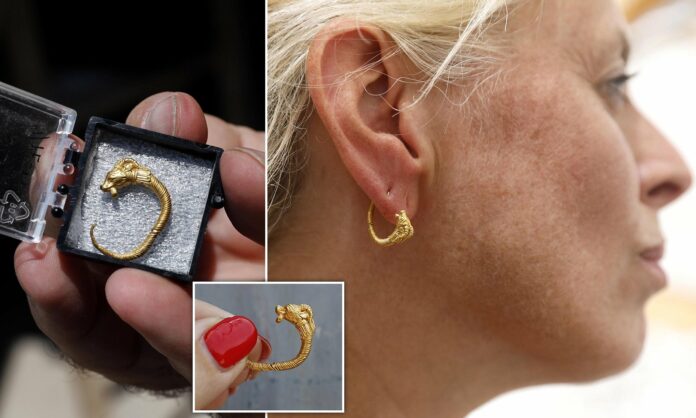In a remarkable archaeological discovery, a 2,200-year-old gold earring has been unearthed near the site of the ancient Jewish temples in Jerusalem. This exquisite piece provides rare evidence of Hellenistic influence on the region, offering a glimpse into the cultural and social dynamics of ancient Jerusalem. Despite the excitement surrounding this find, archaeologists are left with the mystery of its missing pair.
The Discovery of the Gold Earring

The gold earring, measuring four centimeters (1.5 inches) in length, was discovered during excavations outside Jerusalem’s walled Old City. Adorned with a horned animal, believed to be an antelope or deer, this filigree hoop stands out as a unique artifact. Its discovery marks the first time an earring from the Hellenistic period, around the third or early second centuries BC, has been found in Jerusalem.
Hellenistic Influence in Jerusalem
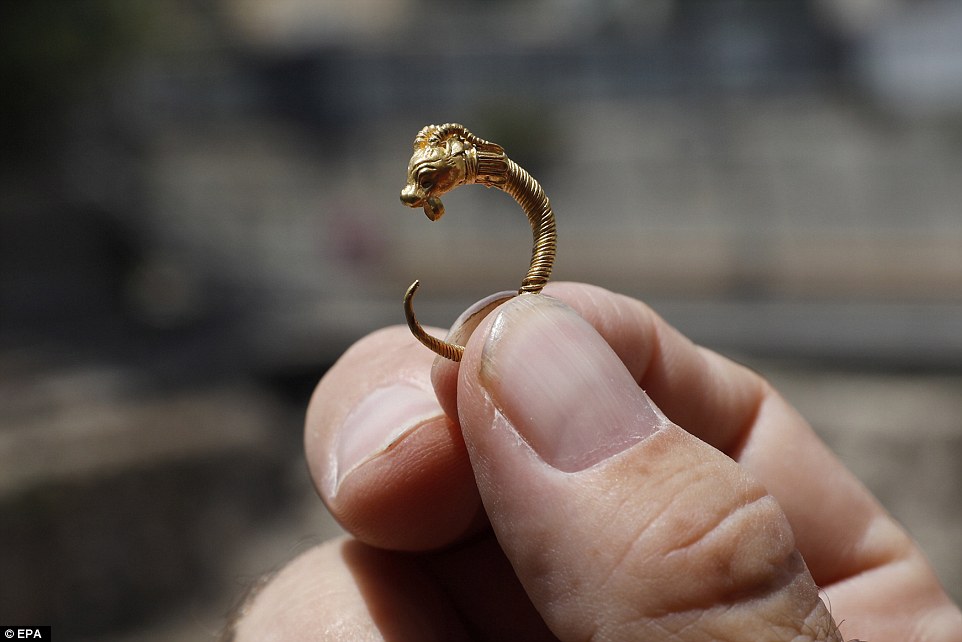
The Hellenistic period in Jerusalem spans from its conquest by Alexander the Great to the Jewish revolt against pagan rule, as recounted in the biblical Books of the Maccabees. The earring was found approximately 200 meters (660 feet) south of the Temple Mount, a site that today houses the al Aqsa mosque, known to Muslims as the Noble Sanctuary. This context underscores the blend of cultural influences present in Jerusalem during this era.
Significance of the Find
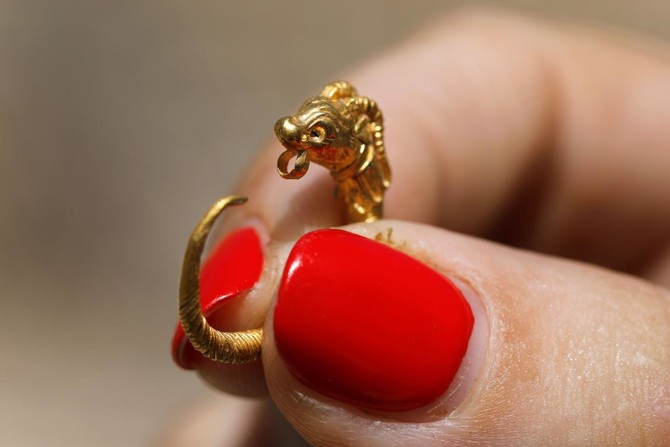
Professor Yuval Gadot of Tel Aviv University, who is involved in the dig, highlighted the significance of this discovery. “This is the first time somebody finds a golden earring from the Hellenistic times in Jerusalem,” he said. The Israel Antiquities Authority suggested that such a trinket might have been worn by wealthy individuals, either Greeks living in Jerusalem or local Hellenized Jews. This artifact not only adds to our understanding of the era but also provides tangible evidence of the diverse influences in ancient Jerusalem.
Insights from the Excavation
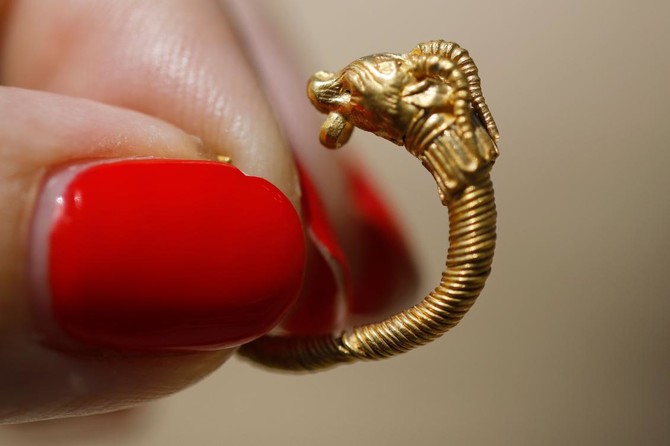
During over a century of archaeological digs in the city, many small discoveries from the Hellenistic period have been made. These include pottery fragments and a few coins, but hardly any remains of buildings that can be accurately dated to this period. The directors of the excavation, Dr. Gadot and Dr. Yiftah Shalev of the Antiquities Authority, emphasized the rarity and high quality of this earring. The intricate design, featuring large eyes, a mouth, and other facial features of the animal, showcases the advanced craftsmanship of the time.
The Filigree Technique
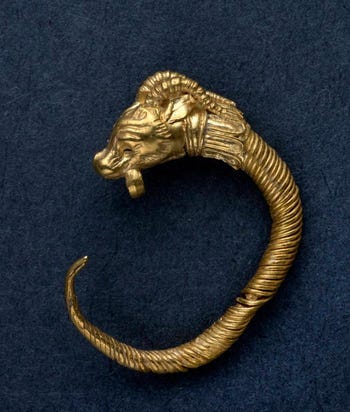
The earring was created using a technique called filigree, which involves combining threads and metal beads to create complex patterns. While similar earrings have been found across the Mediterranean, they are rare in Israel. The discovery of this earring near the Temple Mount and the Temple, which were both in use at the time, further underscores its historical significance.
Conclusion
The unearthing of this 2,200-year-old gold earring in Jerusalem offers a fascinating glimpse into the city’s past, highlighting the Hellenistic influence on its inhabitants. As archaeologists continue to explore the site, they hope to uncover more artifacts that will provide a deeper understanding of Jerusalem’s rich and diverse history. Despite the mystery of the missing pair, this discovery stands as a testament to the intricate artistry and cultural fusion of ancient Jerusalem.
